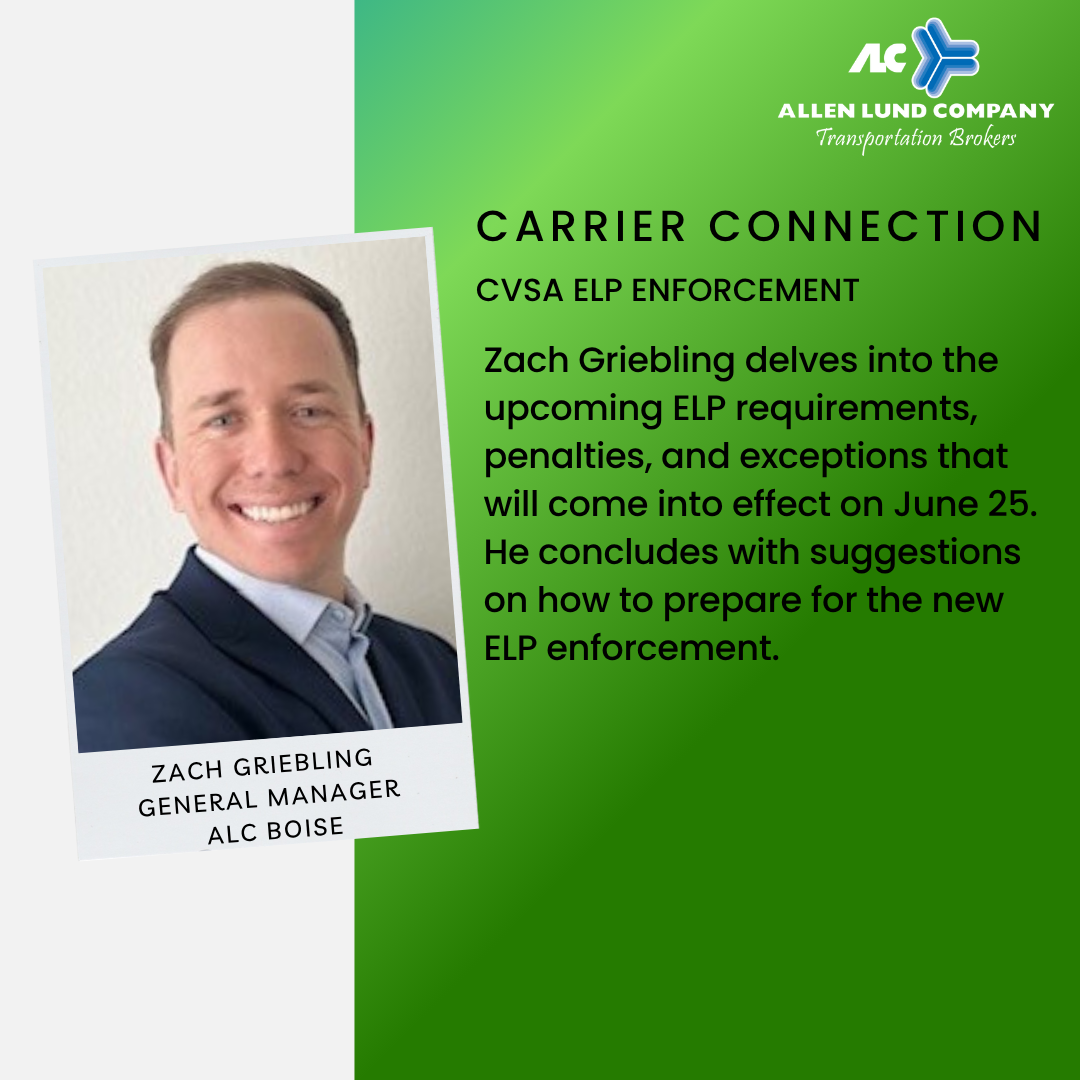Beginning June 25, the Commercial Vehicle Safety Alliance (CVSA) will start issuing Out-of-Service (OOS) violations to commercial drivers who fail an English Language Proficiency (ELP) test. [pqeopybab.cc.rs6.net]Although federal law has long required commercial drivers to demonstrate English proficiency, the rule has not been consistently enforced in recent years—contributing to growing safety concerns. In a recent executive order [pqeopybab.cc.rs6.net], President Donald Trump reaffirmed the importance of English proficiency for road safety, emphasizing that drivers must be able to understand traffic signs, communicate with officials, and follow instructions.
New Roadside Inspection Requirements
The FMCSA now requires all roadside inspections to begin in English. Drivers who are unable to understand basic instructions will be subject to a two-step ELP test:
Step 1: Driver Interview
Officers will ask the driver a series of official questions in English. The driver must respond without assistance.
Step 2: Highway Sign Recognition
If the driver passes the interview, the officer will then evaluate their ability to recognize and understand U.S. traffic signs, including electronic message boards.
Note: If the driver fails Step 1, Step 2 will not be conducted.
Penalties for Non-Compliance
- Drivers may be placed out of service immediately.
- Officers must document the driver’s actual responses as evidence.
- FMCSA may initiate disqualification proceedings, barring the driver from interstate operations.
“America First means safety first [pqeopybab.cc.rs6.net],” said U.S. Transportation Secretary Sean Duffy. “This common-sense change ensures the penalty for failure to comply is more than a slap on the wrist.”
Exceptions
- Border Zone Exception: Drivers operating in commercial zones along the U.S.-Mexico border may be cited for ELP violations, but should not be placed out of service or disqualified at this time.
- Hearing-Impaired Driver Exemption: Drivers with a hearing exemption under 49 CFR 391.41(b)(11) will not be deemed unqualified solely for being unable to communicate orally in English.
How to Prepare
- Confirm all drivers meet federal English proficiency standards.
- Review and update hiring and training procedures.
- Conduct internal assessments to evaluate driver compliance.
These enforcement changes are expected to have a noticeable effect across the transportation sector. According to Matt Blackledge, Senior Director of Pricing, Analytics, and Market Intelligence, had this rule been enforced over the last two years, approximately 13,000 drivers could have been affected. With driver shortages already straining capacity, this new hurdle presents an added challenge to keeping freight moving efficiently across the country.
Read the original article here



